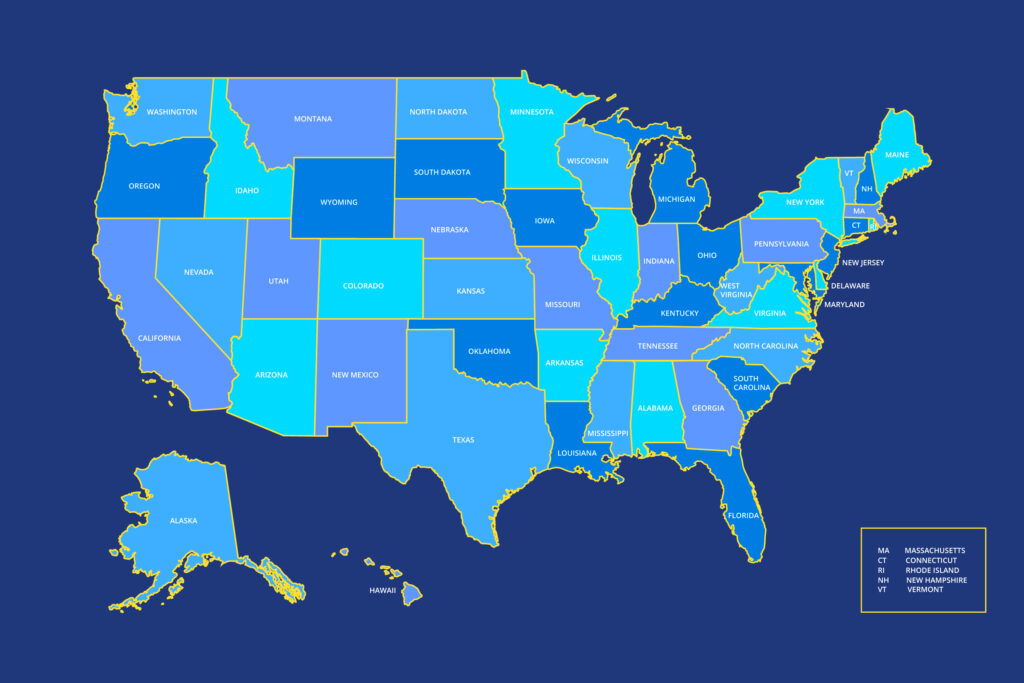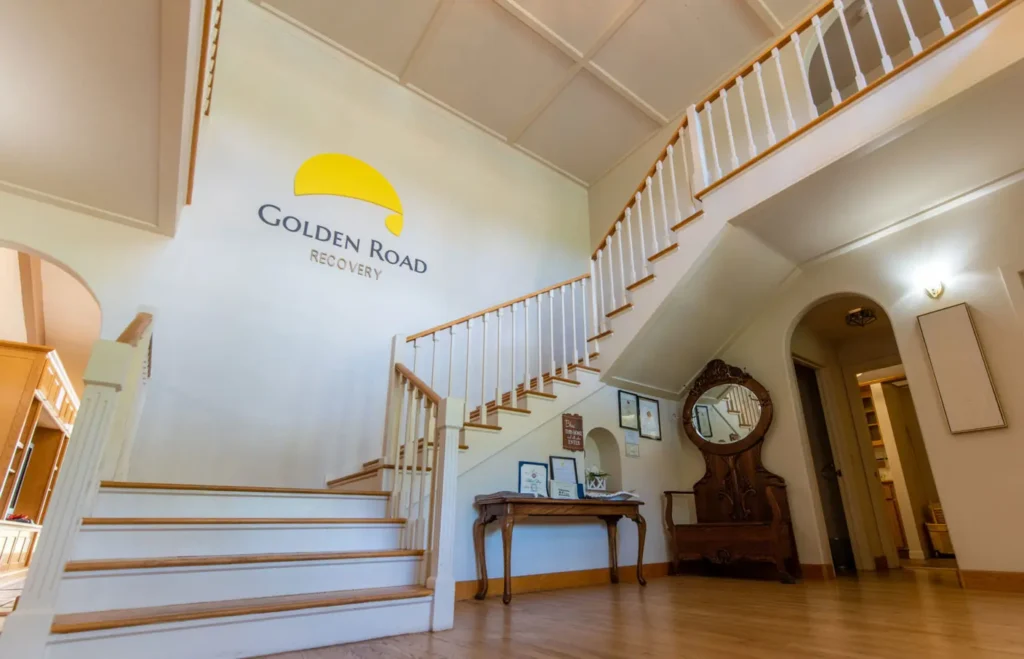⚠️Visitors to our site are often searching for information because they, their best friend, or a family member has unfortunately fallen into use of dangerous substances. We aim to provide information on Free Drug Rehab but more importantly, we protect people from the dangers of substance abuse! ⚠️
Don’t hesitate to call our admissions department at (855) 855-9593 or click the button below to get substance abuse help for yourself or a loved one.
We Can Help You Recover From Substance Abuse
Call Golden Road Recovery Today To Start Healing!
Key Points
- “Free” rehab isn’t always completely cost-free—insurance often covers comprehensive treatment.
- Scholarships from rehabilitation centers can sometimes help individuals without financial means.
- Inpatient, medically-assisted rehabilitation programs offer the most effective solutions for addiction recovery.
- Facilities like Golden Road Recovery provide personalized plans to manage addiction effectively.
- Government-funded, nonprofit, and faith-based programs are options for those who qualify.
The Myth of Completely Free Drug Rehab
When seeking drug and alcohol treatment, individuals frequently search for “free drug rehab.” It’s important to understand that while completely free services exist, they often come with strict eligibility requirements or limitations. However, many rehab centers, including Golden Road Recovery, offer programs that can significantly offset or entirely cover treatment costs through insurance or scholarship opportunities.
Understanding How Insurance Can Cover Your Rehab
Most people are unaware that their health insurance policy often covers substance abuse treatment. Under the Affordable Care Act (ACA), addiction treatment is considered an essential health benefit. This means that if you have insurance—private, Medicaid, or even Medicare—you may qualify for a substantial reduction or complete coverage of your treatment costs [1].
To determine your coverage, contact your insurance provider and ask specifically about addiction treatment benefits. Golden Road Recovery has admissions specialists who can assist you in navigating this process, verifying your benefits, and clarifying exactly what your insurance covers.
Finding a Drug Rehab Program That Works for You
Online resources like the Substance Abuse and Mental Health Services Administration (SAMHSA) treatment locator can help you find rehab programs near you, detailing whether they accept insurance, offer free services, or operate based on sliding fee scales [5]. Similarly, contacting local community centers and social services can guide you toward accessible rehabilitation programs.
Free Drug Rehab And Statistics By State

Golden Road Recovery has streamlined the process of finding rehabilitation options by state as well as providing statistics. Simply select your state from the dropdown list below to access specific local resources and treatment information.
Scholarships: Another Pathway to Treatment
In rare cases, reputable drug rehab facilities like Golden Road Recovery offer scholarships for individuals who demonstrate a critical need but lack financial resources. These scholarships can cover part or all of the cost of inpatient or outpatient treatment programs. Availability varies, and eligibility is typically determined by financial hardship and medical necessity.
We Can Help You Recover From Substance Abuse
Call Golden Road Recovery Today To Start Healing!
Government and Non-Profit Funded Rehab Programs
Government-funded rehabilitation services can also offer a way to access treatment without significant out-of-pocket expenses. These programs, available at federal, state, and local levels, are designed to serve low-income populations and those without adequate health insurance [2].
Nonprofit organizations frequently collaborate with government initiatives or independently provide low-cost or no-cost rehabilitation services. Organizations like the Salvation Army and local community health services may have programs to assist people struggling with substance abuse [3].
Faith-Based Rehabilitation Programs

Faith-based organizations offer another dimension of free or affordable rehab options. These programs incorporate spiritual support into their recovery process, which can be immensely beneficial to individuals who value spirituality in their journey toward sobriety. Many of these programs are supported by religious communities and operate on donations, making them accessible regardless of financial situation [4].
The Essentials of Recovery: Why Choose Inpatient Medically-Assisted Rehab?
Managing addiction successfully involves more than just detoxification. Inpatient medically-assisted rehab combines medical supervision with therapeutic interventions, creating the safest environment for detox and early recovery. This method greatly reduces the risk of relapse, manages withdrawal symptoms safely, and provides ongoing psychological and emotional support crucial for sustainable recovery [6].
At Golden Road Recovery, inpatient programs include personalized medical treatments, group and individual therapy, and comprehensive aftercare planning, ensuring individuals achieve the best possible outcomes for long-term sobriety.
How Golden Road Recovery Can Help

Golden Road Recovery understands that each person’s path to recovery is unique. Whether your treatment is covered by insurance, scholarship, or a combination of resources, our facility provides comprehensive care tailored to your specific needs. Our professional medical team, experienced counselors, and dedicated support staff collaborate to guide you through each step of your recovery journey, offering the highest quality care from admission through ongoing aftercare.
We Can Help You Recover From Substance Abuse
Call Golden Road Recovery Today To Start Healing!
Admission Process: Taking Your First Step Toward Sobriety
The admission process at Golden Road Recovery is designed to be as simple and stress-free as possible. After initial contact, an admissions specialist will help verify your insurance coverage, discuss potential scholarship eligibility, and complete an assessment to identify the most suitable treatment plan for your needs. The goal is to remove financial and logistical barriers, ensuring timely access to vital addiction treatment services.
Frequently Asked Questions (FAQs)
Q1: Can rehab be genuinely free?
A: While entirely free rehab exists, typically through government or nonprofit organizations, these often have strict criteria. However, using insurance or scholarships can significantly offset costs.
Q2: What should I do if I don’t have insurance or money for rehab?
A: Contact Golden Road Recovery or similar facilities about possible scholarships, or look into government-funded or nonprofit programs that might fit your needs.
Q3: Why choose inpatient medically-assisted rehab?
A: Inpatient medically-assisted rehab offers medical oversight during detox, reducing health risks and increasing the chance for successful recovery.
Q4: How do I find out if my insurance covers rehab?
A: Call your insurance provider or speak to an admissions specialist at a rehab facility like Golden Road Recovery to verify your coverage.
Q5: Are faith-based programs effective for drug rehabilitation?
A: Yes, faith-based programs can be highly effective, particularly if spiritual support aligns with your personal beliefs.
We Can Help You Recover From Substance Abuse
Call Golden Road Recovery Today To Start Healing!
Resources
[1] Healthcare.gov: Essential Health Benefits
[2] Substance Abuse and Mental Health Services Administration
[3] Salvation Army Adult Rehabilitation Centers
[4] Faith-Based Recovery Programs – SAMHSA
[5] SAMHSA Treatment Locator
[6] National Institute on Drug Abuse: Treatment Approaches for Drug Addiction




